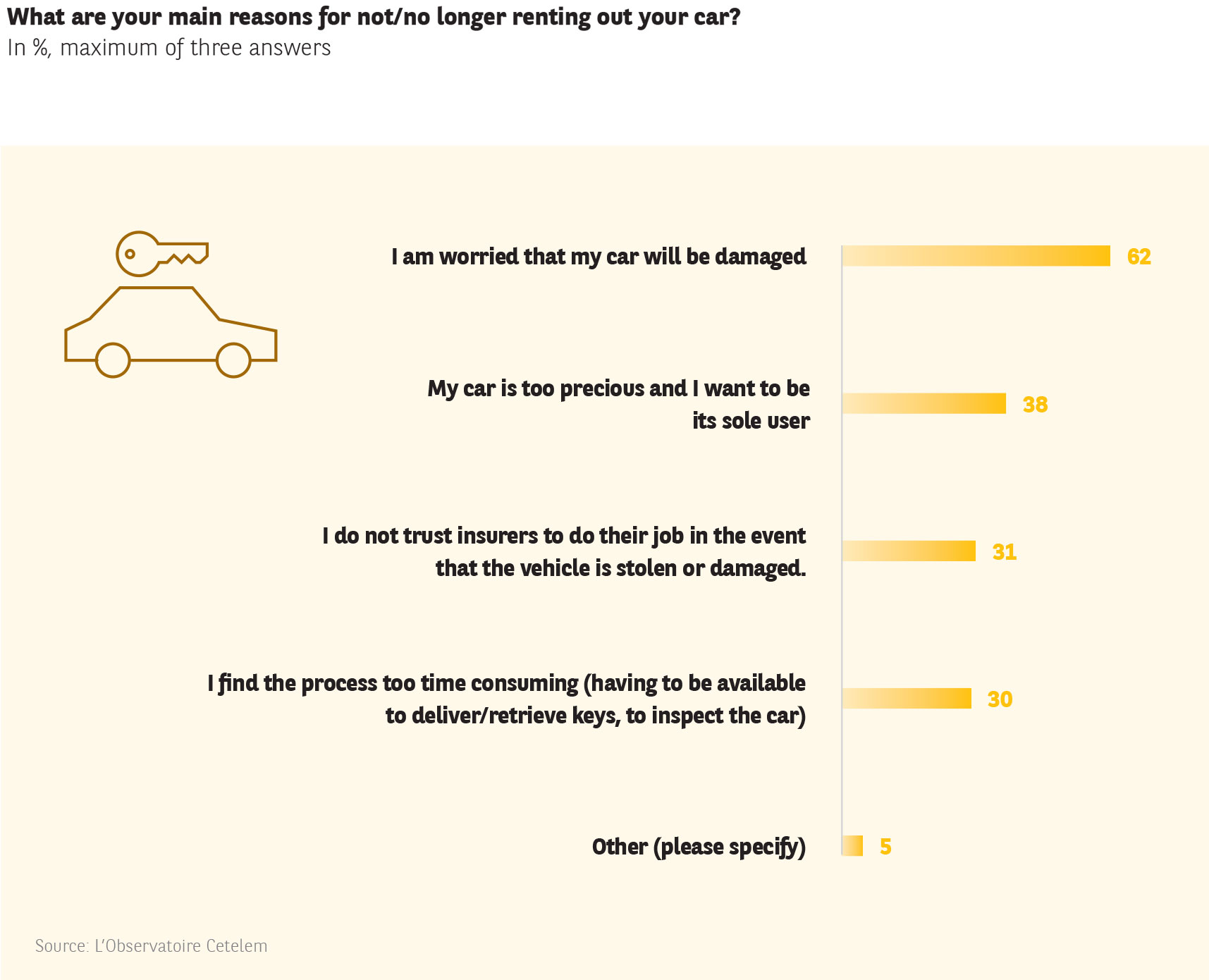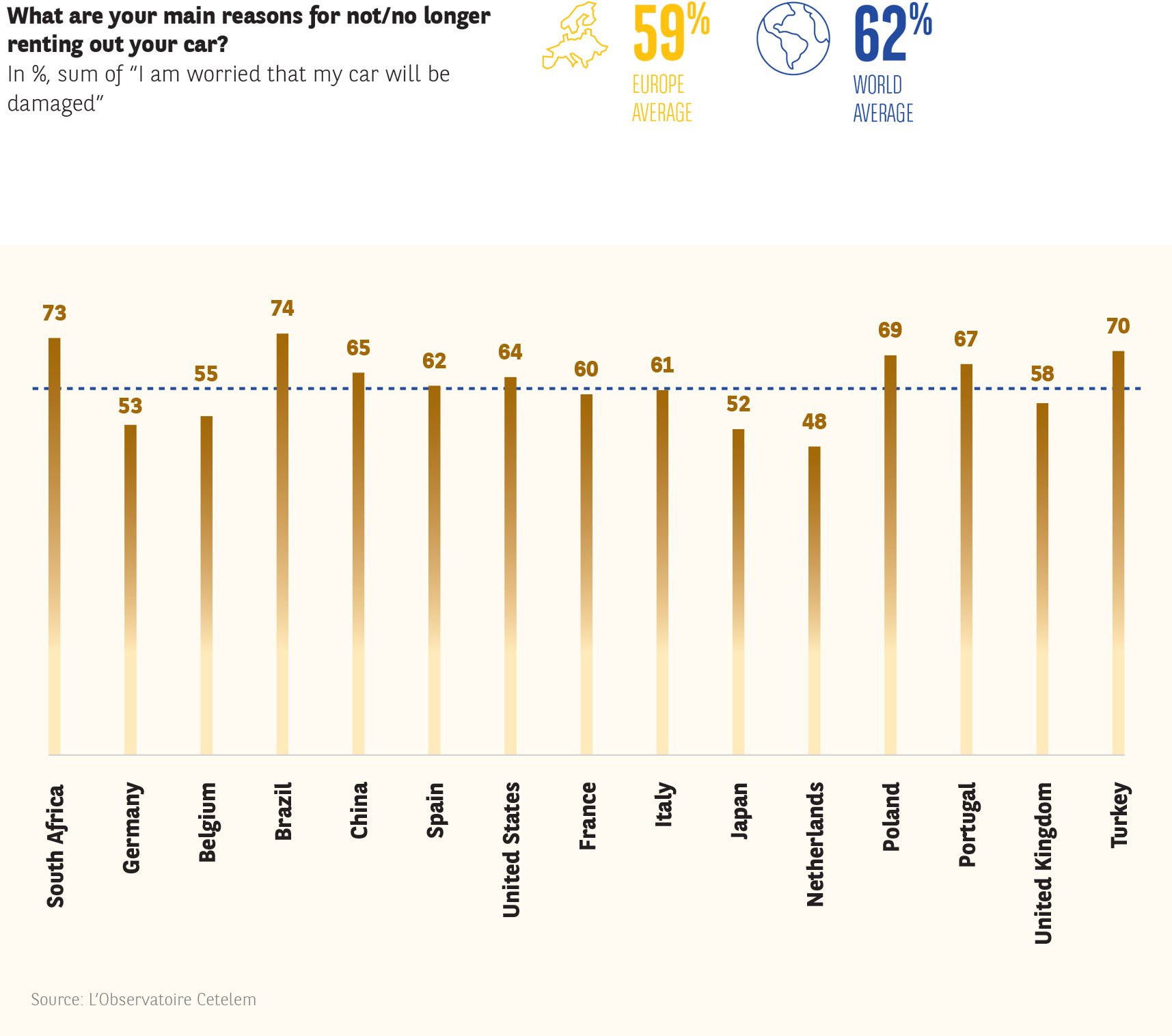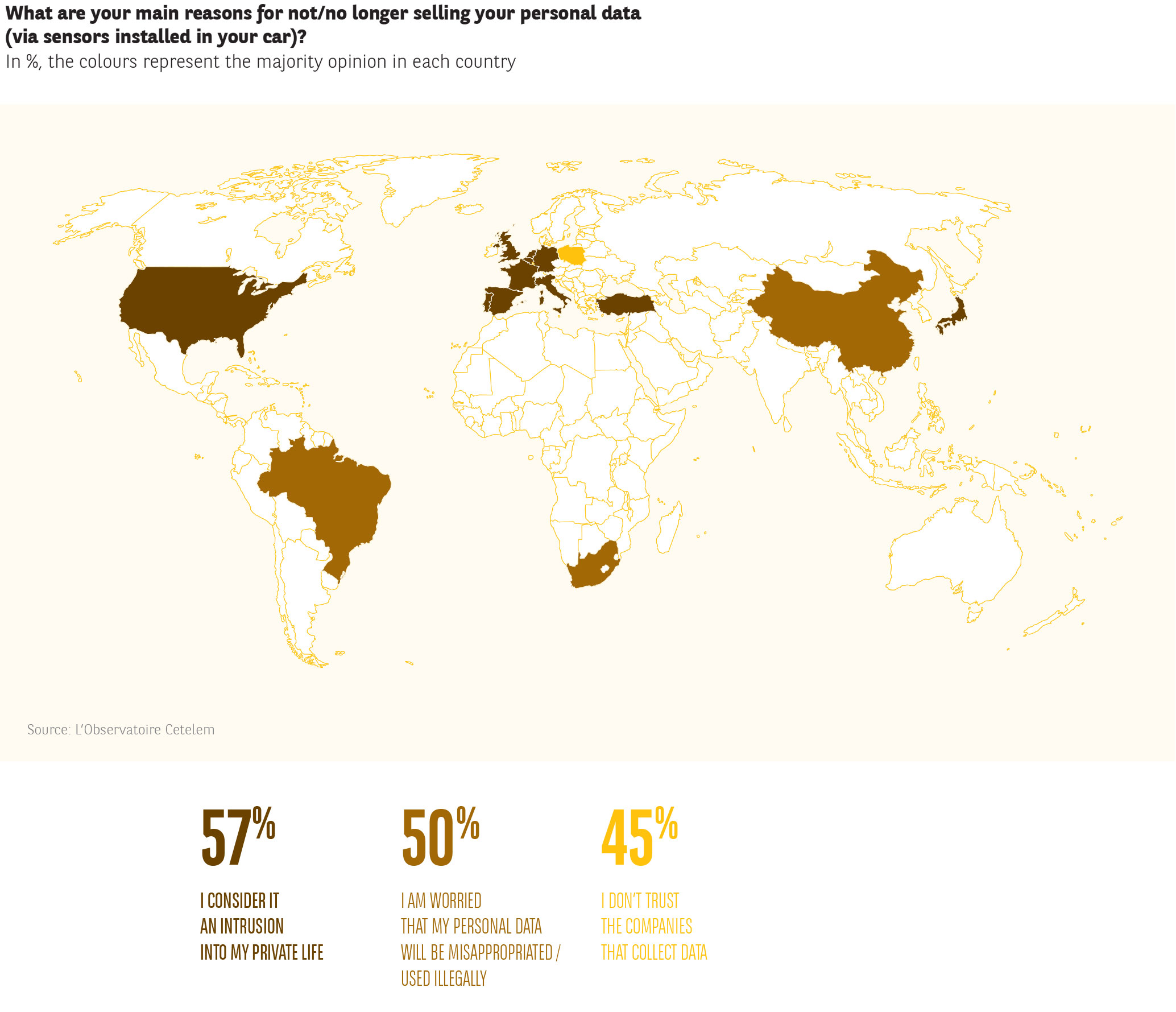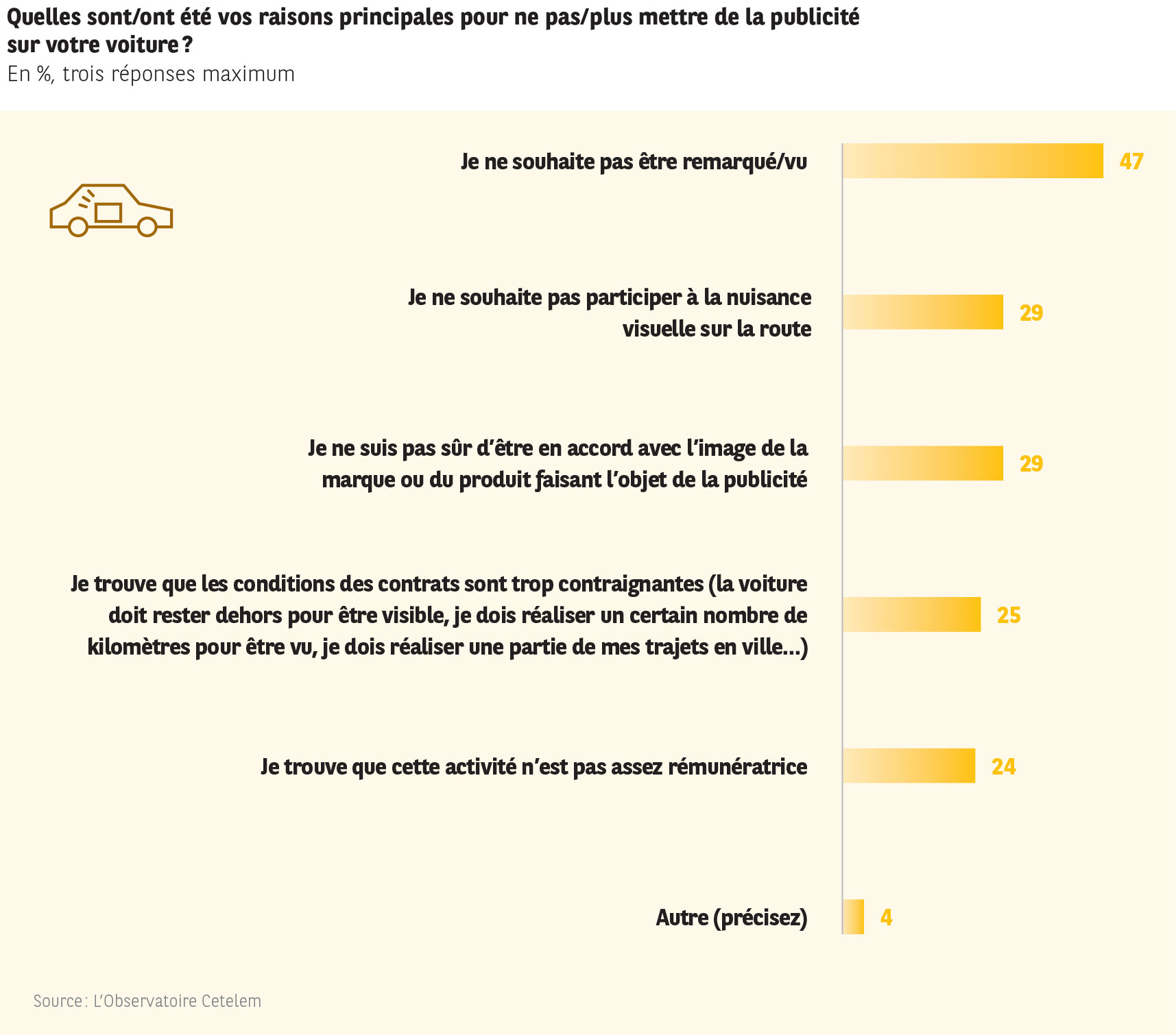The car: still a protected space
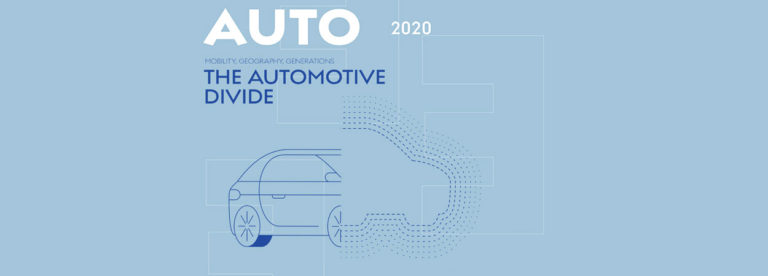

PRIVATE PROPERTY: DO NOT TOUCH
The main reason why motorists are not always keen to offer their car for rental is to avoid it being damaged.
This is the case for 62% of respondents. For once, millennials and seniors, urbanites and rural dwellers are all on the same wavelength. But as previous L’Observatoire Cetelem surveys have already highlighted, cars have an ever-increasing variety of uses and are becoming a sort of second home, a resolutely private space.
The second reason given stems from a sense of ownership, which many are intent on safeguarding. 38% do not wish to rent out their vehicle because they want to be its only user (Fig. 38 and 39).
FIG. 38 :
FIG. 39 :
PROTECTING ONE’S PRIVACY: SENIORS ARE MORE MISTRUSTFUL
The desire to safeguard their privacy also conditions people’s decision to forgo payment in exchange for allowing their private data to be recorded by sensors installed in vehicles. 57% consider that this would be an intrusion into their private life. 1 in 2 people fear that this data would be misappropriated and used for illegal purposes (Fig. 40 In both cases, seniors are somewhat more suspicious than millennials.
The fear that data may be used fraudulently is particularly strongly felt in China (70%). Yet the country is a paradise for ecosystems in which data is the new black gold, while also having the most digitalized vehicle purchasing systems. So is this a paradox or are their suspicions justified?
FIG. 40 :
ADVERTISING: ZERO DISCRETION GUARANTEED
Advertising is another way to earn income with one’s vehicle, but it is not popular with everyone. 1 in 2 motorists do not wish to turn their car into a sandwich board. Seniors are the most reluctant category, while the Germans and Brazilians are the least reticent in this area. It should be noted that 1 in 4 people ultimately consider the financial rewards to be insufficient, especially millennials (Fig. 41).
FIG. 41 :
CONFIRMATION PENDING
Thus, from a marketing standpoint, should we view car sharing and ride sharing solutions as being purely for show? It is hard to ignore the fact that, beyond the emotional attachment people have to their cars, the constraints involved and the simple reality of life go a long way to explaining the confinement of car sharing and ride sharing to a relativelylimited number of users.
However, the influence of millennials and urban dwellers, who tend to be more favourable and open to these new forms of “automobility”, means that hope remains that they will take off.

